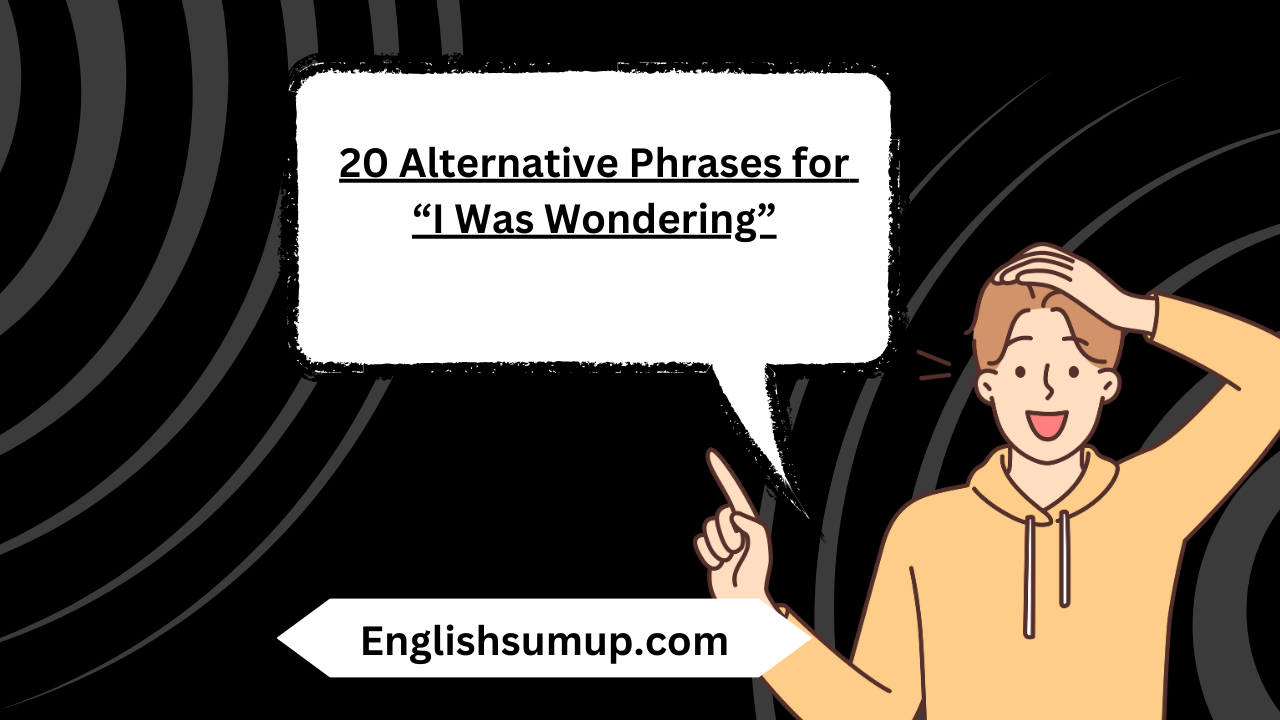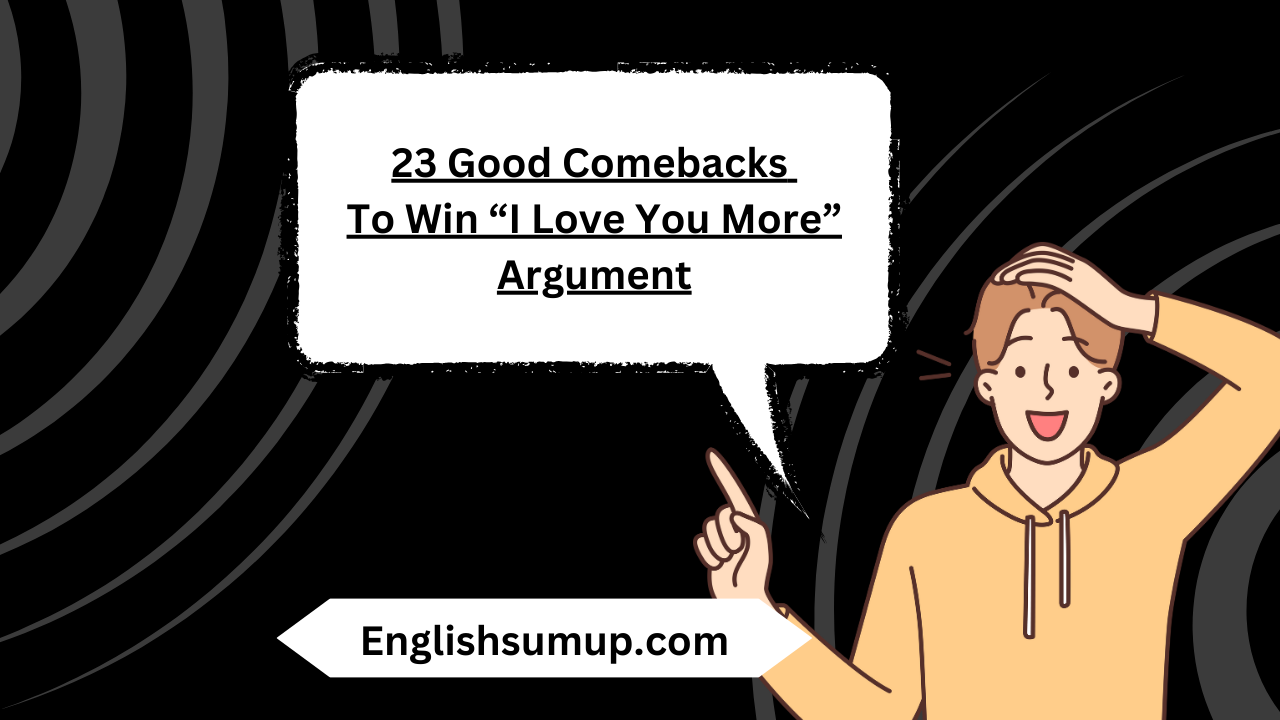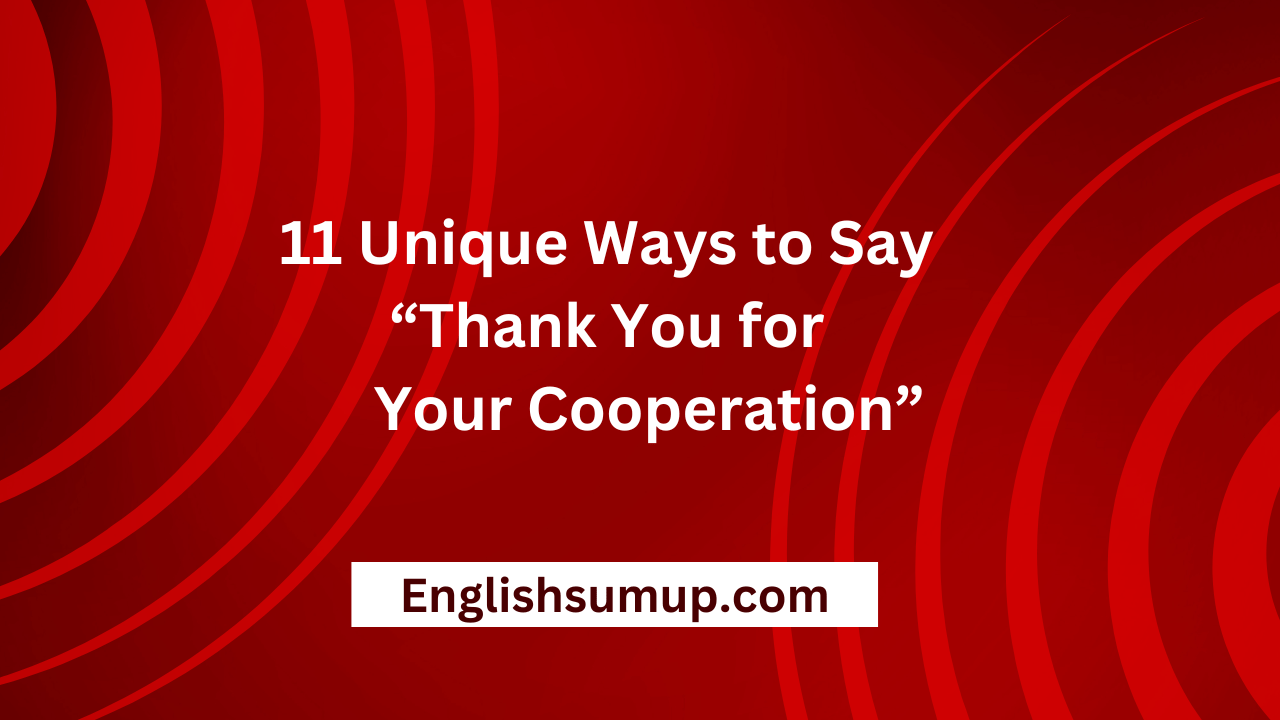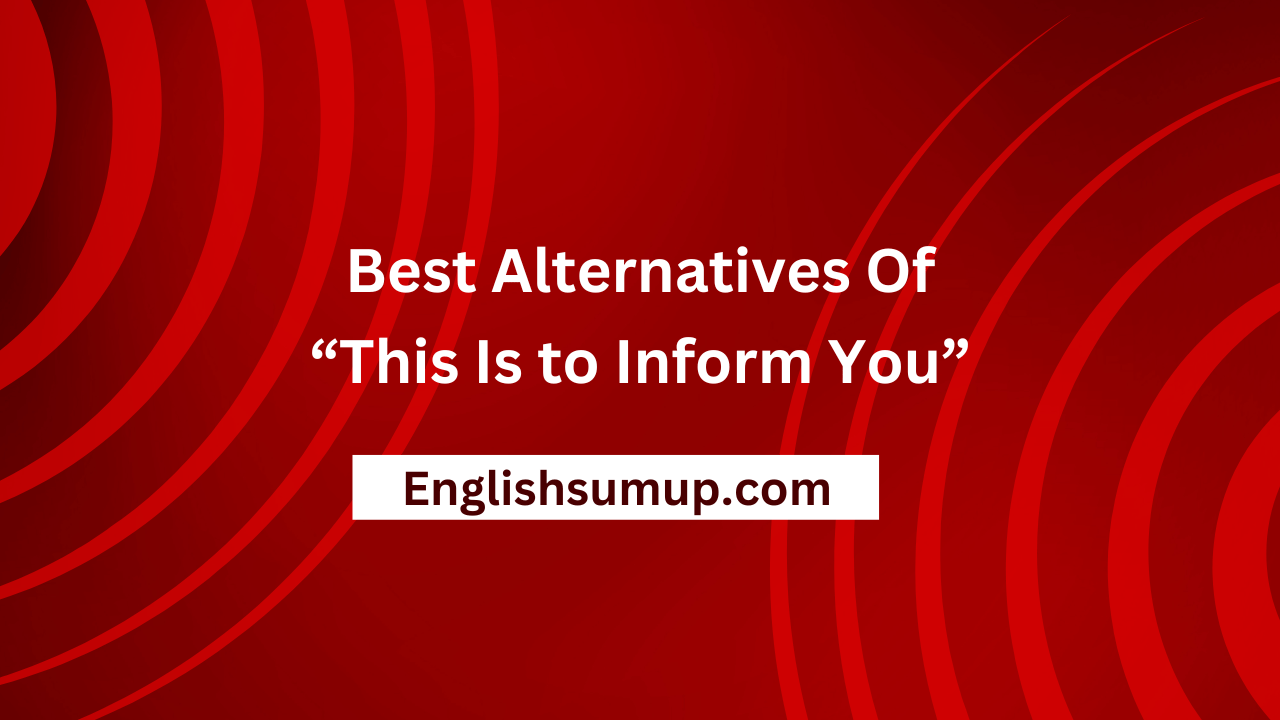In the realm of formal communication, the choice of words can greatly influence the impression we leave on others. One common phrase used to initiate inquiries or requests is “I was wondering.” However, to add sophistication and variety to our language, it’s beneficial to explore alternative expressions. In this article, we will delve into 20 formal synonyms for “I was wondering,” discussing their usage, pros, and cons, along with providing sample emails for each phrase.
Why Should We Say This?

“I was wondering” is a casual and commonly used phrase. However, in formal settings such as business correspondence, academic writing, or professional emails, it may lack the desired level of professionalism. Utilizing formal synonyms not only elevates the tone of our communication but also demonstrates a refined command of language, potentially enhancing our credibility and professionalism.
You may love this one: 20 Professional Ways to Say “I Appreciate It”
Pros:
- Enhances professionalism.
- Adds variety and sophistication to language.
- Demonstrates linguistic versatility.
- Creates a polished impression.
- Suitable for formal contexts.
Cons:
- May sound overly formal in casual conversations.
- Requires familiarity with appropriate usage.
- Might seem pretentious if overused.
- Can be time-consuming to select the most suitable synonym.
- May require adjustment based on cultural or situational contexts.
List of 20 Formal Synonyms for “I Was Wondering”:
“May I inquire…”
“Could you please provide information on…”
“I would appreciate clarification regarding…”
“Might I request…”
“Permit me to ask…”
“Would it be possible to…”
“Kindly inform me…”
“I am seeking information about…”
“Would you be so kind as to…”
“Could you shed light on…”
“I am curious to know…”
“Might I trouble you for…”
“I am interested in learning more about…”
“Could you spare a moment to…”
“I am writing to inquire about…”
“Would you be able to assist me with…”
“I am keen to understand…”
“Might I impose upon you to…”
“I am hoping you could provide insight into…”
“Would you mind enlightening me on…”
Explanation and Sample Email for Each Synonym:
“May I inquire…”
This phrase is a polite and formal way to express curiosity or request information. It suggests a sense of respect and deference towards the recipient. Compared to the more casual “I was wondering,” “May I inquire” adds a level of formality and professionalism to the inquiry, making it suitable for formal or professional settings where a higher degree of etiquette is expected.
Sample Email:
Subject: Inquiry Regarding Project Status
Dear John,
May I inquire about the current status of the project? I would appreciate any updates you could provide.
Thank you,
Devon
“Could you please provide information on…”
This phrase is a direct and polite request for specific information or clarification. It demonstrates courtesy and clarity in communication. Compared to the casual tone of “I was wondering,” “Could you please provide information on” is more precise and direct, leaving no room for ambiguity and indicating a clear expectation of the recipient’s response.
Sample Email:
Subject: Request for Product Specifications
Hello John,
Could you please provide information on the specifications of the new product? Any details would be helpful.
Regards,
Devon
“I would appreciate clarification regarding…”
This phrase conveys a need for further explanation or understanding on a particular topic. It expresses politeness and a desire for clarity. In contrast to the informal nature of “I was wondering,” “I would appreciate clarification regarding” adopts a more formal tone, indicating a deliberate effort to maintain professionalism and clarity in communication.
Sample Email:
Subject: Seeking Clarification on Meeting Agenda
Hi John,
I would appreciate clarification regarding the agenda for our upcoming meeting. Could you provide more details?
Best regards,
Devon
“Might I request…”
This phrase seeks permission to make a request, demonstrating politeness and consideration for the recipient’s time and resources. It suggests a level of formality and respect in communication. Contrary to the casual tone of “I was wondering,” “Might I request” adds a layer of formality and deference, making it suitable for formal or respectful interactions.
Sample Email:
Subject: Request for Extension on Deadline
Dear John,
Might I request an extension on the deadline for the project submission? I would be grateful for your consideration.
Sincerely,
Devon
“Permit me to ask…”
This phrase is a formal way of asking for permission to pose a question or make a request. It acknowledges the recipient’s authority or position and seeks permission in a polite manner. Unlike the casual nature of “I was wondering,” “Permit me to ask” emphasizes respect and formality, aligning with expectations in formal or hierarchical environments.
Sample Email:
Subject: Permission to Ask a Question
Hello John,
Permit me to ask a question regarding the budget allocation for the upcoming fiscal year.
Thank you,
Devon
“Would it be possible to…”
This phrase suggests a possibility of assistance or action, while maintaining a polite and respectful tone. It allows for flexibility and openness in the recipient’s response. Compared to the casual inquiry of “I was wondering,” “Would it be possible to” adopts a more formal and courteous approach, indicating a willingness to accommodate the recipient’s constraints or preferences.
Sample Email:
Subject: Inquiry About Meeting Availability
Dear John,
Would it be possible to schedule a meeting next week to discuss the project progress?
Regards,
Devon
“Kindly inform me…”
This phrase politely requests the recipient to provide information or updates. It conveys respect and courtesy while expressing the need for communication. Contrary to the informal tone of “I was wondering,” “Kindly inform me” adopts a more formal and respectful approach, indicating a clear expectation of the recipient’s cooperation and assistance.
Sample Email:
Subject: Request for Status Update
Hello John,
Kindly inform me of the current status of the task assignment.
Best regards,
Devon
“I am seeking information about…”
This phrase indicates a specific search for information or clarification on a particular topic. It communicates the purpose of the inquiry clearly and directly. Compared to the casual expression of “I was wondering,” “I am seeking information about” conveys a more deliberate and focused approach, emphasizing the importance of the information being requested in a formal or professional context.
Sample Email:
Subject: Seeking Information About Training Program
Dear John,
I am seeking information about the upcoming training program. Could you provide details on the schedule and topics covered?
Thank you,
Devon
“Would you be so kind as to…”
This phrase politely requests assistance or a favor from the recipient. It acknowledges the recipient’s willingness to help and expresses gratitude in advance. Unlike the casual nature of “I was wondering,” “Would you be so kind as to” adds a layer of formality and courtesy, aligning with expectations in formal or respectful interactions.
Sample Email:
Subject: Request for Feedback on Proposal
Hello John,
Would you be so kind as to provide feedback on the proposal I submitted last week?
Best regards,
Devon
“Could you shed light on…”
This phrase asks for clarification or explanation on a specific topic, suggesting a desire for further understanding. It conveys politeness and respect for the recipient’s knowledge or expertise. In contrast to the informal tone of “I was wondering,” “Could you shed light on” adopts a more formal and precise approach, indicating a deliberate effort to seek clarity and insight in a professional or academic context.
Sample Email:
Subject: Request for Clarification on Project Timeline
Dear John,
Could you shed light on the expected timeline for project completion?
Thank you,
Devon
“I am curious to know…”
This phrase expresses a sense of genuine interest or intrigue in acquiring specific information. It conveys a respectful and polite manner of seeking knowledge. Contrary to the casual tone of “I was wondering,” “I am curious to know” adds a layer of formality and sincerity, indicating a genuine desire to learn or understand in a formal or professional context.
Sample Email:
Subject: Inquiry Regarding Project Progress
Dear John,
I am curious to know about the progress of the ongoing project. Could you provide an update on the current status?
Thank you,
Devon
“Might I trouble you for…”
This phrase acknowledges the potential inconvenience of the request while politely seeking assistance or information. It demonstrates consideration and respect for the recipient’s time and effort. Unlike the casual nature of “I was wondering,” “Might I trouble you for” adopts a more formal and courteous approach, indicating a willingness to acknowledge and mitigate any inconvenience caused by the request.
Sample Email:
Subject: Request for Assistance with Research
Hello John,
Might I trouble you for some assistance with my research project? I would appreciate any insights or resources you could provide.
Best regards,
Devon
“I am interested in learning more about…”
This phrase expresses a genuine desire to acquire additional knowledge or information on a particular subject. It conveys enthusiasm and curiosity in a respectful manner. Compared to the casual expression of “I was wondering,” “I am interested in learning more about” adopts a more formal and focused approach, indicating a deliberate effort to seek deeper understanding or insight in a formal or academic context.
Sample Email:
Subject: Request for Further Details on Workshop Topics
Dear John,
I am interested in learning more about the topics covered in the upcoming workshop. Could you provide further details or a syllabus for reference?
Thank you,
Devon
“Could you spare a moment to…”
This phrase politely requests the recipient’s time or attention for a specific purpose. It acknowledges the value of the recipient’s time while expressing the importance of the request. Unlike the casual tone of “I was wondering,” “Could you spare a moment to” adds a layer of formality and respect, indicating a consideration for the recipient’s availability and priorities.
Sample Email:
Subject: Request for Brief Discussion on Project Updates
Hello John,
Could you spare a moment to discuss the recent updates on the project? I would appreciate your insights and feedback.
Regards,
Devon
“I am writing to inquire about…”
This phrase signifies the purpose of the email upfront, indicating a formal inquiry or request for information. It establishes clarity and directness in communication. Compared to the casual nature of “I was wondering,” “I am writing to inquire about” adopts a more formal and structured approach, setting the tone for a professional exchange of information.
Sample Email:
Subject: Inquiry Regarding Job Vacancy
Dear John,
I am writing to inquire about the job vacancy advertised on your company’s website. Could you provide further details regarding the job requirements and application process?
Thank you for your assistance.
Sincerely,
Devon
“Would you be able to assist me with…”
This phrase seeks assistance or support from the recipient in a polite and respectful manner. It acknowledges the recipient’s capability and willingness to help. Unlike the casual tone of “I was wondering,” “Would you be able to assist me with” adopts a more formal and courteous approach, indicating a clear expectation of collaboration or support in a professional context.
Sample Email:
Subject: Request for Guidance on Project Implementation
Hello John,
Would you be able to assist me with the implementation of the new project initiative? Your expertise and guidance would be greatly appreciated.
Best regards,
Devon
“I am keen to understand…”
This phrase conveys a strong interest or enthusiasm in gaining comprehension or insight into a particular matter. It signifies a genuine desire to learn and engage with the topic. In contrast to the casual expression of “I was wondering,” “I am keen to understand” adopts a more formal and focused approach, indicating a deliberate effort to seek clarity or knowledge in a professional or academic context.
Sample Email:
Subject: Request for Training Materials
Dear John,
I am keen to understand the new software system being implemented in our department. Could you provide any training materials or resources to aid in my learning process?
Thank you for your assistance.
Regards,
Devon
“Might I impose upon you to…”
This phrase acknowledges the potential imposition of the request on the recipient while politely seeking assistance or cooperation. It demonstrates consideration and respect for the recipient’s time and resources. Unlike the casual nature of “I was wondering,” “Might I impose upon you to” adds a layer of formality and courtesy, indicating a willingness to acknowledge and mitigate any inconvenience caused by the request.
Sample Email:
Subject: Request for Feedback on Proposal
Hello John,
Might I impose upon you to provide feedback on the proposal I submitted last week? Your insights would be invaluable in refining the project plan.
Best regards,
Devonn
“I am hoping you could provide insight into…”
This phrase expresses a hopeful anticipation of receiving valuable information or guidance from the recipient. It conveys a respectful and polite manner of seeking assistance or clarification. Compared to the casual expression of “I was wondering,” “I am hoping you could provide insight into” adopts a more formal and courteous approach, indicating a sincere expectation of the recipient’s expertise or knowledge in a formal or professional context.
Sample Email:
Subject: Seeking Expertise on Market Trends
Dear John,
I am hoping you could provide insight into the current market trends in our industry. Your expertise would greatly assist in our strategic planning efforts.
Thank you for your time and consideration.
Sincerely,
Devon
“Would you mind enlightening me on…”
This phrase politely requests the recipient to share knowledge or information on a particular topic. It conveys a respectful and humble attitude towards learning. In contrast to the casual tone of “I was wondering,” “Would you mind enlightening me on” adopts a more formal and courteous approach, indicating a genuine desire to acquire knowledge or understanding in a professional or academic context.
Sample Email:
Subject: Request for Clarification on Policy Changes
Hello John,
Would you mind enlightening me on the recent policy changes announced by the management? Your insights would help clarify any confusion among the team.
Thank you for your assistance.
Regards,
Devon
Conclusion:
In formal communication, the phrase “I was wondering” serves its purpose but may lack the desired level of professionalism. By incorporating formal synonyms, we can enhance the sophistication and effectiveness of our language. However, it’s essential to use these alternatives judiciously, considering the context and audience. Experimenting with different expressions can enrich our communication skills and contribute to establishing a polished image in professional interactions.
FAQs:
Q: Are these alternatives suitable for all formal situations?
A: While these alternatives are generally appropriate for formal contexts, it’s essential to consider the specific situation and audience.
Q: How can I determine which synonym to use?
A: Consider factors such as the level of formality required, the recipient’s preferences, and the nature of the inquiry or request when selecting a synonym.
Q: Is it necessary to use formal language in all professional communications?
A: While formal language is often preferred in professional settings, adapt your tone based on the nature of the communication and the expectations of the recipient.
Remember, the key is to strike a balance between professionalism and clarity, ensuring that our communication effectively conveys our message while leaving a positive impression on the recipient.










